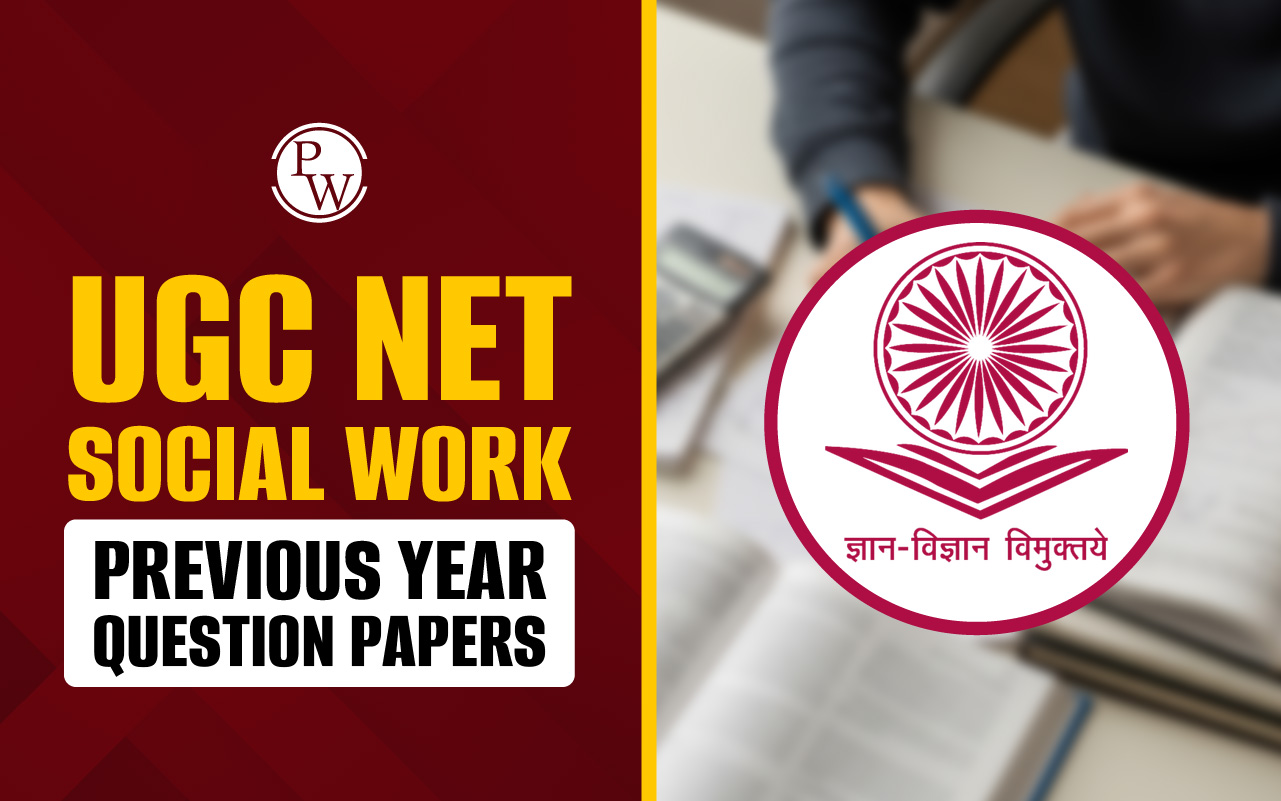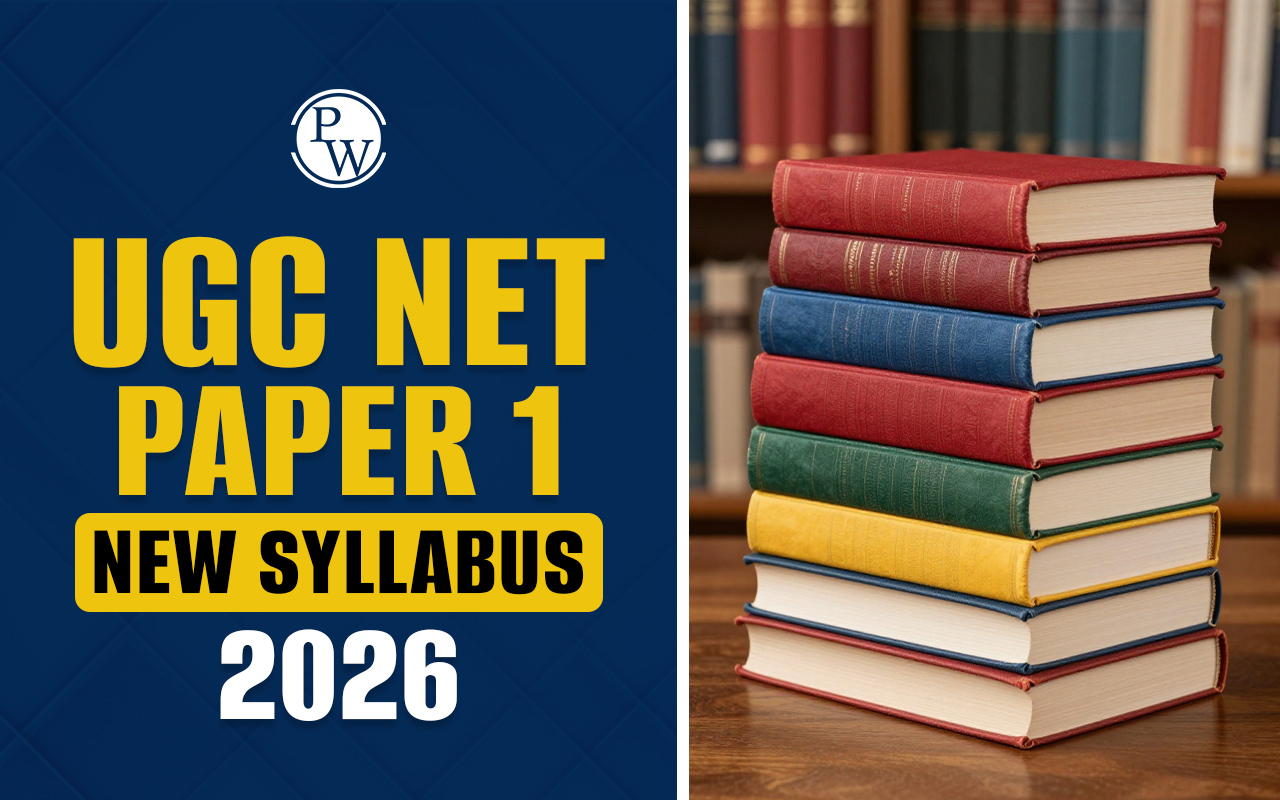
UGC NET Subject List 2025: The National Testing Agency (NTA) has released the subject list for the UGC NET 2025 examination. Candidates having eligibility can go through the total subjects before filling the UGC NET application form 2025. The UGC NET June 2025 exam is scheduled to be held from 21 to 30 June 2025. Candidates are advised to go through the complete subject list and choose one that aligns with their academic background.
UGC NET Subject List 2025 Overview
The UGC NET subject list 2025 has been released online for the June Session. Candidates who are going to appear for the upcoming exam can get an insight of the same from the section below:
|
UGC NET Subject List 2025 Overview |
|
|
Category |
Details |
|
Exam Name |
|
|
Conducting Body |
National Testing Agency (NTA) |
|
Post Name |
Junior Research Fellowship (JRF) and Assistant Professor |
|
Exam Mode |
Computer-Based Test (CBT) |
|
UGC NET 2025 Exam Date |
21 to 30 June 2025 (Tentative) |
|
UGC NET 2025 Total Subjects |
83 |
|
Exam Pattern |
Paper 1: General Paper (50 Questions) Paper 2: Subject-specific (100 Questions) |
|
Total Marks |
Paper 1: 100 marks Paper 2: 200 marks |
|
Official Website |
ugcnet.nta.ac.in |
UGC NET Subject List 2025
The UGC NET subject list 2025 has been released online for the upcoming session scheduled to be held in June 2025. Candidates who have yet to fill the UGC NET application form 2025 can refer to the official subject list. This will help them get an insight if their preferred subjects are on the list.
|
UGC NET Subject List 2025 |
|
|
UGC NET Subjects |
UGC NET Code |
|
Social Work |
10 |
|
Sociology |
5 |
|
Spanish |
40 |
|
Tamil |
26 |
|
Telugu |
27 |
|
Tourism Administration and Management. |
93 |
|
Tribal and Regional Language/Literature |
70 |
|
Urdu |
28 |
|
Visual Art (including Drawing & Painting/Sculpture Graphics/Applied Art/History of Art) |
79 |
|
Women Studies |
74 |
|
Yoga |
100 |
|
Adult Education/Continuing Education/Andragogy/Non-Formal Education |
46 |
|
Anthropology |
7 |
|
Arab Culture and Islamic Studies |
49 |
|
Arabic |
29 |
|
Archaeology |
67 |
|
Assamese |
36 |
|
Bengali |
19 |
|
Bodo |
94 |
|
Buddhist, Jaina, Gandhian, and Peace Studies |
60 |
|
Chinese |
32 |
|
Commerce |
8 |
|
Comparative Literature |
72 |
|
Comparative Study of Religions |
62 |
|
Computer Science and Applications |
87 |
|
Criminology |
68 |
|
Defence and Strategic Studies |
11 |
|
Dogri |
33 |
|
Economics/Rural Economics/Co-operation/Demography/Development Planning/Development Studies/Econometrics/Applied Economics/Development Economics/Business Economics |
1 |
|
Education |
9 |
|
Electronic Science |
88 |
|
Philosophy |
3 |
|
Physical Education |
47 |
|
Political Science |
2 |
|
Politics including International Relations/International Studies including Defence/Strategic Studies, West Asian Studies, South East Asian Studies, African Studies, South Asian Studies, Soviet Studies, American Studies |
90 |
|
Population Studies |
15 |
|
Prakrit |
91 |
|
Psychology |
4 |
|
Public Administration |
14 |
|
Punjabi |
24 |
|
Rajasthani |
43 |
|
Russian |
41 |
|
Sanskrit |
25 |
|
English |
30 |
|
Environmental Sciences |
89 |
|
Folk Literature |
71 |
|
Forensic Science |
82 |
|
French (French Version) |
39 |
|
Geography |
80 |
|
German |
44 |
|
Gujarati |
37 |
|
Hindi |
20 |
|
Hindu Studies |
102 |
|
History |
6 |
|
Home Science |
12 |
|
Human Rights and Duties |
92 |
|
Indian Culture |
50 |
|
Japanese |
45 |
|
Kannada |
21 |
|
Kashmiri |
84 |
|
Konkani |
85 |
|
Labour Welfare/Personnel Management/Industrial Relations/Labour and Social Welfare/Human Resource Management |
55 |
|
Law |
58 |
|
Library and Information Science |
59 |
|
Linguistics |
31 |
|
Maithili |
18 |
|
Malayalam |
22 |
|
Management (including Business Admn. Mgt./Marketing/Marketing Mgt./Industrial Relations and Personnel Mgt./ Personnel Mgt./Financial Mgt./Co-operative Management) |
17 |
|
Manipuri |
35 |
|
Marathi |
38 |
|
Mass Communication and Journalism |
63 |
|
Museology & Conservation |
66 |
|
Music |
16 |
|
Nepali |
34 |
|
Oriya |
23 |
|
Pali |
83 |
|
Performing Art - Dance/Drama/Theatre |
65 |
|
Persian |
42 |
|
Sanskrit traditional subjects (including Jyotisha/Sidhanta Jyotish/Navya Vyakarna/Vyakarna/Mimansa/Navya Nyaya/Sankhya Yoga/Tulanatmaka Darsan/Shukla Yajurveda/Madhav Vedant/Dharmasasta/Sahitya/Puranotihasa/Agama) |
73 |
|
Santali |
95 |
|
Sindhi |
101 |
|
Social Medicine & Community Health |
82 |
How to Choose UGC NET Subject for Exam?
-
Choosing the right UGC NET subject is a key step for exam success. It ensures your preparation is focused and effective. Selecting a subject aligned with your qualifications and interests enhances motivation and improves your chances of scoring well.
-
Review your highest academic qualifications carefully. Your chosen UGC NET subject must correspond with your graduation or post-graduation specialization. This alignment ensures you have the necessary foundational knowledge and meet eligibility criteria for that subject’s examination.
-
Examine the full list of 83 UGC NET subjects available. Carefully study each syllabus and topic to understand the scope and depth required. This helps you select a subject that fits your knowledge level and preparation capacity.
-
Consider your long-term career goals when choosing a UGC NET subject. Whether you aim for teaching, research, or further studies, select a subject that strengthens your career prospects and aligns with your professional aspirations.
-
Check for availability of quality study materials, reference books, and coaching resources for your chosen subject. Access to good preparation aids is vital for thorough understanding and successful exam performance.
-
Prioritize the subjects in which you have strong interest and confidence. Choosing a subject you enjoy studying boosts commitment and helps maintain consistent preparation, increasing your likelihood of achieving a good score in the UGC NET exam.
UGC NET Exam Pattern 2025
The UGC NET is held biannually, usually in June and December. The examination comprises two papers:
-
UGC NET Paper 1: This is a universal paper applicable to all candidates, evaluating teaching and research aptitude, reasoning skills, comprehension, divergent thinking, and general awareness. It is worth a total of 100 marks.
-
UGC NET Paper 2: This paper focuses on the specific subject chosen by the candidate, testing their in-depth knowledge in that area. There are 83 subjects available for Paper 2, and it carries a total of 200 marks.
UGC NET Subject List 2025 FAQs
When will the UGC NET Subject List for 2025 be released?
How many subjects are included in the UGC NET Subject List 2025?
Where can I find the UGC NET Subject List with codes?
What is the significance of the subject codes in the UGC NET exam?
Can I change my chosen subject after submitting the application?










